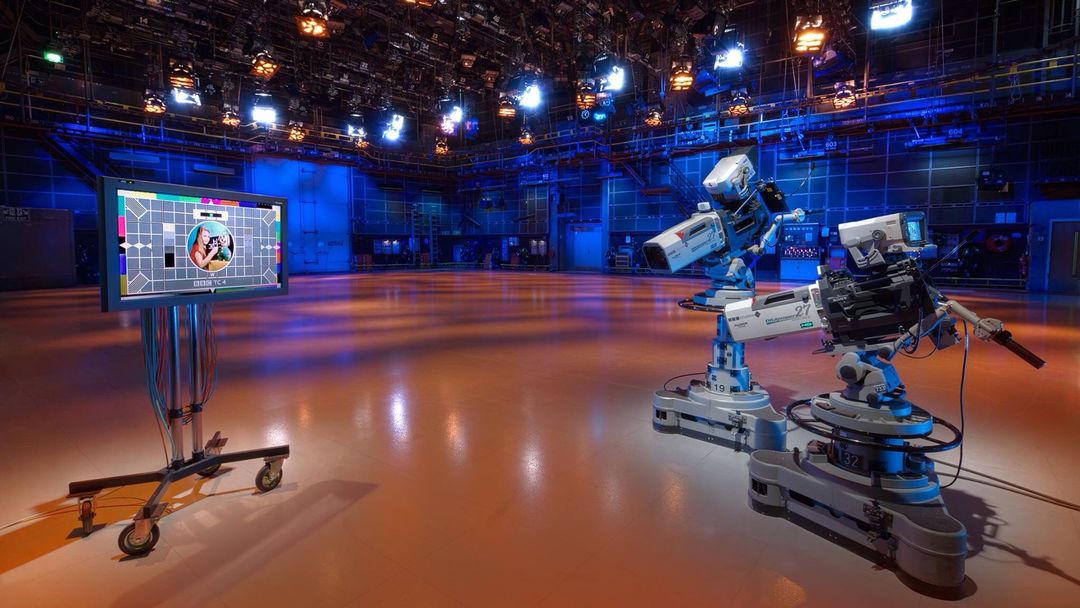Broadcast Industry & Technology Intro
2 days (or 1 day abridged)

Overview
This 2 day Broadcast Training course is presented for a fixed price at your premises.
The schedule for the day has been put together to provide a cost effective way to address the often overlooked basics of the broadcast industry and its technology, whilst also having a positive impact on staff morale by encouraging back-office/admin staff to be included in the initial session(s).
A cut-down version of this course may be run for 1-day – please discuss what topics are important and we will endeavour to ensure appropriate coverage.

All sessions are presenter-led becoming progressively more technical in style.
As can be seen by the diagram, the first half-day is suitable for all staff and has been run successfully presented to larger groups (15-20 people) – though groups of this size feel more of a formal presentation style and limits discussion.
As the course gets more technical (beyond the first morning session) a maximum of 10 attendees is recommended to allow questions to be adequately addressed. Smaller groups are typically more effective in any training and this course can be run for as few as 2-3 people.
Course Trainer
Pricing

Ed Calverley
Pricing (2024) for the standard 2-day course is £4,500. For the 1-day variant, the pricing depends whether demonstration equipment is used: £2,400-2,750. These are fixed fees regardless of the number of attendees. Expenses are charged in addition to this base fee – an all-inclusive fixed price quote can be provided on request. Inclusive pricing covers all travel, subsistence, printing and other expenses plus access to PDF versions and access to view session recordings (for revision use).
View Our Other Courses
AutoCAD LT for Broadcast Engineers
2-day practical course (or 1-day abridged) covering all the tools and techniques for using AutoCAD LT in a broadcast setting. Focussing primarily on modifying existing broadcast system schematics (i.e. video and audio system diagrams), but also touching on rack layouts & more.
Broadcast Engineering Essentials
3-5 day course covering the fundamentals of broadcast technology that every engineer and technician should know. Attendees of this course will be more confident and able to tackle any new technology challenges they may face is their broadcast systems evolve.
Practical Introduction to IP Networking
This hands-on 4-day course gives attendees greater confidence in understanding IP networks in a broadcast setting. Starting from the basics, trainees will learn everything they need to know (layer models, VLANs and Routing, TCP/IP, UDP Multicasting, RTP Streaming and more!)
APIs and Web Technologies for Broadcast & Media
This highly practical, hands-on 2-day course introduces the technologies used to support web interfaces, the servers behind them, API (Application Programming Interface) integrations with other systems and data sources, and the security methods used to keep everything safe from attack.
No coding experience is necessary - this course is aimed at staff needing an awareness when working with software teams/vendors
Broadcast Video & Technology for Developers
1 or 2 day course tailored to file and/or live workflows.
What makes Broadcast Video special? This short course is aimed at software developers who are working with solutions for use in broadcast. What are the key technology aspects everyone should know. The basics of Broadcast Video and Audio will be introduced, explaining important topics like interlace and colour sub-sampling (what is 4:2:0!?).
TR-1001 IP Media Networks
This session covers everything you need to know about IP-based networking for Media Production. It covers all the essential network protocols and standards for uncompressed video over IP (SMPTE ST 2022-6 / ST 2110) as well as looking at how to make such systems work through the use of PTP and NMOS specifications.
Broadcast Industry & Technology Intro
This 1 or 2 day course has been put together to provide a cost-effective way to address the often-overlooked basics of the broadcast industry and its technology whilst also having a positive impact on staff morale by encouraging back-office/admin staff to be included in the initial session(s).
